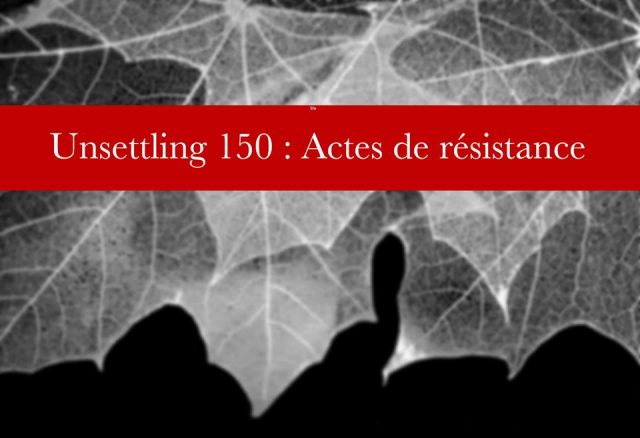CLIENT SCREENING: The Pass System screens for Free for #Canada150 acts of resistance
Special screenings for Canada Day presented by Vtape and Cinema Politica.
The Pass System is an important film that looks into the policy implemented by the Government of Canada that kept people living on reserve locked into place by putting restrictions on their movement. In order to leave the reserve one required a ‘pass’ from the Indian Agent.
After the Northwest Resistance of 1885, three Canadian officials put forward a proposal for a system of racial segregation – whites from First Nations – to their Prime Minister, Sir John A. Macdonald, who enthusiastically approves, declaring: “…it is in the highest degree desirable to adopt it.” From then on, and for over 60 years, permits to leave reserve would only be issued at the pleasure of an Indian Agent. From day one, the Canadian government knew this segregationist pass system had no legal basis. (read more…)
From Director Alex Williams:
Pleased to announce that THE PASS SYSTEM will screen for free online this “Canada Day” weekend in a collection of films presented by Vtape and Cinema Politica for 72 hours: from Friday June 30 to Sunday July 2. Just click the link below.
This collection of films represents only the tip of a massive iceberg of stories that have and need to be told, but there’s some pretty fierce ones in this group already!
Acknowledging here that these films and videos will screen in many traditional territories across this country, often unceded or subject to broken treaties, and are sacred lands to many Indigenous nations.
Many of the films here may stir in you the desire for change, and the will to act. Especially on this weekend, join Idle No More, in their calls for:
1. A new open truly Nation-to-Nation recognition process that begins by fully recognizing collective Indigenous rights and Title, and our decision-making power throughout our territories.
2. Full implementation of the Truth and Reconciliation Calls for Action, including rejecting the colonial doctrines of discovery and recognizing Indigenous self-determination.
3. Full implementation of the United Nations Declaration of the Rights of Indigenous Peoples on the ground.


No Comments